Belgrad & Zagreb: neues Europa
Filme gegen alle Begrenzungen, gegen alle Festlegungen, gegen alles Dogmatische, gegen alles Ewige. In den 1960/70ern, einer Zeit der radikalen künstlerischen Neubestimmungen, war der kulturelle Raum Jugoslawiens - selbst ein experimentelles Gefüge zusammengehalten durch die Idee des Internationalismus - ein fruchtbarer Boden für eine vollkommen neue filmische Praxis. Die Amateur-Cine-Clubs von Zagreb und Belgrad experimentierten mit neuen Formen des visuellen Ausdruck und der künstlerischen Haltung. VIDEOEX präsentiert vier Programme aus dieser Zeit, darunter die legendären Mysterien des Organismus (1971) von Dušan Makavejev. Vier Blöcke zeigen zeitgenössisches Experimentalfilmschaffen aus Kroatien und Serbien, Interventionen eines «radikalen Amateurismus» und die Rückeroberung des «Microcinema», und ein Programm zur Zagreber Schule des Animationsfilms.
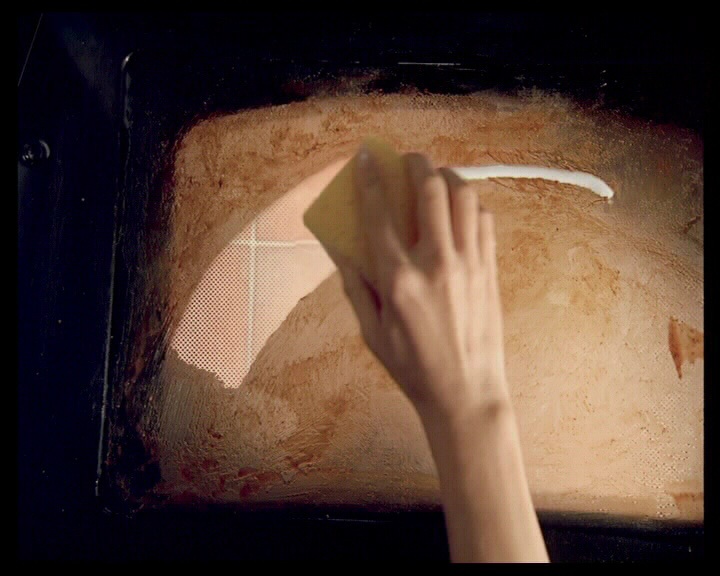
re-claiming the microcinema - Contemporary Belgrad
Sa 01.06. 20:15h Cinema Z3
Kuratiert von Aleksandra Sekulić.
Die Low-Fi-Videobewegung Serbiens (1997-2003) bezieht sich auf die Tradition des Kino-Amateurismus des ehemaligen Jugoslawiens (entstanden zwischen 1950 und 1990). Es handelte sich dabei um eine selbstorganisierte Tätigkeit der Arbeiterklasse, eine Art revolutionäre künstlerisch-kulturelle Bewegung, welche die Klassenteilung aufhob, genauer die Trennung zwischen den kreativ Tätigen und den passiv konsumierenden Zuschauer_innen (Katarina Sivic). Dieser Anschluss wurde von Aldo Milohnic als radikaler Amateurismus beschrieben. Er deutet die kulturelle Praxis des Amateurismus (den er vom Dilettantismus unterscheidet) als Teil der Neo-Avantgarde-Kunstmethoden der späten 1960er und frühen 1970er sowie der Alternativkultur der 1980er, die in Opposition standen zum geforderten Professionalismus der kulturellen Elite. Die Bewegung arbeitete «ästhetisch unbelastet durch das jeweilige Medium und die im Arbeitsprozess verwendeten Materialien» und praktizierte eine Form «der unmittelbaren und radikalen Intervention in kulturelle, soziale und politische Sphären der Jugoslawischen Gesellschaft» (Milohnic). Die Low-Fi-Videobewegung im Serbien der 1990er Jahre kann als ein performatives Reenactment der Handlungen und Haltungen des Kino-Amateurismus in einem öffentlich ausgetragenen emanzipativen Prozess gedeutet werden. Diese Alternativkultur ist ein spezifisch serbischer Teil der Microcinema-Bewegung, die in den USA in den 1990er Jahren neu belebt wurde und die ihre Wurzeln in den so genannten Renegade-Screenings hat, die während den 1960ern von Filmemachenden organisiert wurden. Auf Low-Fi-Video folgen vielseitige Experimente: ein Re-Claiming, ein Zurückerobern und Neubeanspruchen von Bildern und überhaupt des gesamten Mechanismus der Filmproduktion, was eine neue Sprache der Freiheit ermöglicht.
Yugoslav cine-amateurism (developed in the period 1950s-1990) has been considered by Low-Fi Video movement (1997-2003) to be the most significant tradition to build on, evoking continuity in specific aspects, as stated by Katarina Sivic: the self-organized activity of working people, a form of revolutionary movement in culture and arts towards annihilation of class divisions: the «creators of artistic value» and «audience» which only passively consumes the cultural goods. This continuity is subsumed under the term used recently by Aldo Milohnic: «radical amateurism». According to his thesis, the amateur practice (and not dilettante) and cultural practices as part of neo-avant-garde art practices of the late 1960s and early 1970s, as well as the 1980s alternative culture in the former Yugoslavia, could be interpreted precisely as an opposition to the presupposed professionalism of the cultural elite at the time. It represents a movement «aesthetically unburdened by the media and materials used in their work», but the one which was «participating in a spontaneous ideology of immediate radical intervention in cultural, social and political spheres of Yugoslav society» (Milohnic). The later Low-Fi Video movement can be observed as a performance: restored behaviour of cine-amateurism, as the process of publicly performed and effectuated emancipation of alternative culture in the 1990s Serbia. As a member of microcinema movement, revived in USA in 1990s, rooted in «renegade screenings» organized by the artists throughout the 1960s, it was also as performance of a microcinema in specific context of Serbia. Low-Fi Video was followed by diverse and evolved experiments, where we also trace the re-claiming of images parallel to the process of re-claiming the overall mechanism of the film production which enables the new language of freedom. (Aleksandra Sekulić)
Sivić, Katarina, Neprofesionalna filmska i video produkcija u Srbiji 1997-2001, Belgrade: Faculty of dramatic Arts, 2001.
Milohnić, Aldo, Radical Amateurism, in: Deschooling Classroom Toolbook, Belgrade: TKH and Kontrapunkt, 2012.
Janevski, Ana (Ed.), As Soon As I Open My Eyes I See Film – Experiment in the Art of Yugoslavia in the 1960s and 1970s, Museum of Modern Art in Warsaw, 2010.
Aleksandra Sekulić is archive and program curator in the Center for Cultural Decontamination, Belgrade, member of the Kosmoplovci group (digital arts, music, film), she was program editor of the Academic Film Center of the Students’ City Cultural Center (AFC SCCC) in Belgrade (2005-2008).
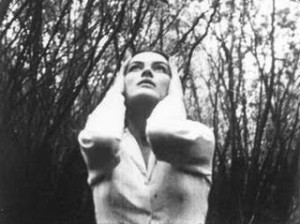
radical amateurism - Belgrad Historical
Sa 01.06. 16:15h Cinema Z3
Kuratiert von Aleksandra Sekulić.
Interventionen eines radikalen Amateurismus
Zeitgenössische Produktionen lassen sich als Lesarten der «Sprache der Freiheit» (Bojan Jovanivić) interpretieren, die im alternativen Film der 1970er und 1980er artikuliert worden ist (Miroslav Bata Petrović). Im experimentelle Avantgarde-Film Jugoslawiens von Sava Trifković und Ivko Šešić findet sich das Begehren, Film aus dem vorgegebenen Rahmen des Filmgeschäfts zu lösen und mit ihm das Vermögen zu schaffen für eine neue Sensibilität. Vor diesem Hintergrund ist The Hands of the Purple Distances von Sava Trifković eine sublimierte filmische Erfahrung, eine Initiation in eine solche neue Sensibilität (wie im Gedicht Der Gärtner (1914) von Rabindranath Tagore: «The push of death has swung her into life.»). Im Film von Miroslav Bata Petrović (The Influence of Earth’s Gravity to Naïve Beings) wird auf die Position des Kindes fokussiert, was ein Gefühl der Beklemmung hervorruft. Praznik von Jovan Jovanović ist eine filmische Antizipation des Mediums Video und eine spezifische, offene Definition von Experiment und ermöglichte damit zukünftigen Praktiken.
We can read contemporary production also as readings of the «language of freedom» (Bojan Jovanović) which was articulated by the alternative film in 1970s and 1980s (as noted by Miroslav Bata Petrović), but also trace the roots of the desire to emancipate film from the given frames of the film economy and give it the power to build new sensibility as it was developed by avant-garde film and categorized in SFRY as experimental (Sava Trifković, Ivko Šešić). We can observe The Hands of the Purple Distances made by Sava Trifković as the sublimated film experience and initiation of the new sensibility in the field of experiment in film (followed by the quote from The Gardener by Rabindranath Tagore: «The push of death has swung her into life»). Shift was made by the generation of alternative film: chosen fixation of the position of the child, evoking anxiety in the film of Miroslav Bata Petrović: The Influence of Earth’s Gravity to Naïve Beings; the film anticipation of the video medium evolution in Praznik by Jovan Jovanović, where we meet with a specific open definition of experiment which enabled building on to future practices. (Aleksandra Sekulić)
Aleksandra Sekulić ist Kuratorin im Center for Cultural Decontamination, Belgrade, Mitglied der Kosmoplovci group (digital arts, music, film).
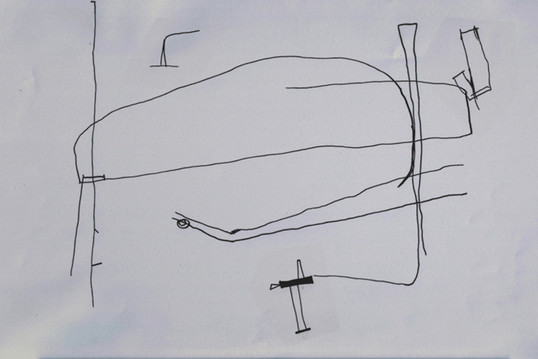
Croatia Animation
Fr 31.05. 20:15h Cinema Z3
Kroatien ist in der Welt des Animationsfilms keine Unbekannte und blickt zurück auf eine über sechzigjährige Geschichte der Suche nach neuen visuellen und konzeptuellen Ausdrucksformen. Kreativer Pool war Zagreb mit seiner langjährigen Tradition in Illustration, Comic und Grafikdesign.
Kuratiert von Duscha Kistler, Expertin für Animationsfilm und ehemalige künstlerische Leiterin von Fantoche. Internationales Festival für Animationsfilm.
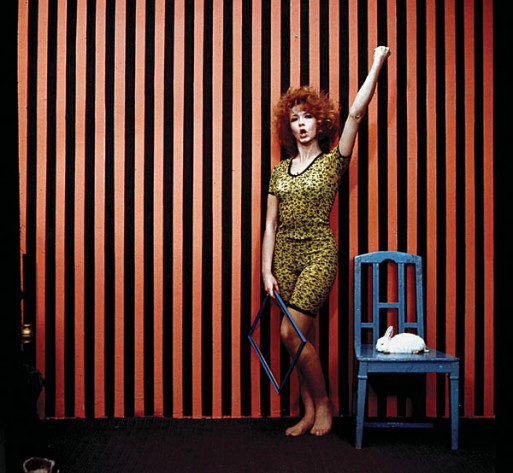
Night of the Underground - The Ex-Yugoslav Kino Clubs (and Beyond)
Do 30.05. 21:00h Festivalzentrum
neue Zeit! Beginn schon um 21:00h
Jugoslawisches Kino ist reich an «underground spirit», Beispiele zu finden ist leicht. Eine Herausforderung ist es lediglich aus ihnen auszuwählen: So viele exemplarische Filmemachende und filmischen Tendenzen aus einer Zeit, als dieses Land noch existierte und alternatives Kino produzierte. Die offensichtlichste Wahl wären Filme der Black Wave gewesen, das tönt bereits nach Underground. Wir entschieden uns aber für ein anderes Phänomen – eines, das vielleicht historisch nicht so gewichtig, aber eigentlich fast bedeutender war.
Die vom Staat finanzierten Jugoslawischen Filmklubs, genannt Kino Clubs, entstanden in den späten 1940ern und sollten bald zum Katalysator für cineastische Experimente und zur Herausforderung an kommerzielle Ästhetik und Ideologie werden. Sie waren Sprungbrett nicht nur für experimentierfreudige Filmemacher_innen sondern auch für die grossen Regisseur_innen des landesweiten Underground- und Oppositionskinos. Während vieler Jahrzehnte schlugen die Kino Clubs kleine und grössere Wellen in verschiedenen Farben, nicht nur in schwarz. Der grosse Dusan Makavejev begann seine Kariere in einem dieser Kino Clubs, und sein legendärer Film W.R. Die Mysterien des Organismus wird in diesem Programm gezeigt – nicht nur als Beispiel dieser Bewegung sondern auch als Erinnerung daran, wie weltoffen die Sozialistische Föderative Republik Jugoslawien in den 1960ern und 1970ern war.
Das Programm bietet zudem die seltene Gelegenheit, zwei der am wenigsten bekannten Helden des Jugoslawischen Experimentalfilms im Originalformat zu entdecken: Ljubomir Simunic und Davorin Marc. Marc wird VIDEOEX besuchen und erzählen, wie es für einen nicht-professionellen Filmemacher in den späten 1970ern und frühen 1980ern in Jugoslawien möglich war, mehr als 150 Filme zu produzieren. Dies ist das erste Screening seiner Filme ausserhalb von Jugoslawien. Die gleichermassen seltene Vorstellung von vier Werken Simunic’, der mit den Kino Clubs in Kontakt stand, aber privat produzierte, wirft eine weitere Frage in den Raum: Wenn technisch und konzeptuell raffinierte Filmexperimente wie diejenigen von Simunic fernab der Strukturen von Kino Clubs gemacht wurden, wie gross ist dann das Ausmass an filmischen Überraschungen, die dieses Land uns noch vorenthält? Dann erhalten wir Eintritt in einen der noch existierenden Clubs dieser Ära, das Akademski Filmski Centar. Seit vielen Jahrzehnten setzt AFC als eine der wichtigsten Organisationen seine Arbeit fort und ermöglicht sowohl die Produktion von als auch die Auseinandersetzung mit Kino Club-Filmen. Ohne die Bemühungen von seinem Leiter Miodrag Milosevic und seinen Kolleg_innen wäre es sehr schwierig gewesen, Filmemacher wie die zwei oben erwähnten ausfindig zu machen. Milosevic wird das Festival besuchen mit einem Programm von zeitgenössischen Werken aus Serbien, die im AFC Kino Club gemacht wurden.
Vassily Bourikas ist Filmschaffender, Kurator and Mitbegründer des LabA (Labor Athens).
With a focus on Yugoslavian cinema it is not hard to find enough examples of true Underground spirit. But it was hard to choose one out of so many options of films, exemplary filmmakers and cinematic tendencies from a time when that country existed and produced alternative cinema. And if the most obvious choice was the underground-sounding Black Wave we decided to throw the spotlight on another phenomenon, one that was even less historicized but arguably even more important. The state funded Yugoslav film-club (Kino Club) platforms emerged in the late 1940s and were soon to become a catalyst for cinematic experimentation and the challenging of mainstream aesthetics and ideas. They became a springboard not only for experimental filmmakers but also for the great directors of the country's Underground and oppositional cinema. For many decades the Kino clubs made waves and ripples and these had a lot of colors, not just Black. The great Dusan Makavejev began his career at such a Kino Club and his legendary film WR, Mysteries of the Organism is presented here, not only as an example of this development but also as a reminder of how cosmopolitan the Socialist Federal Republic of Yugoslavia was in the 1960s and 70s.
On a different tone this Night of the Underground will give us the rare opportunity to discover two of the most unsung heroes of Yugoslav experimental film, Ljubomir Simunic and Davorin Marc, through the full splendor of their original prints. Marc will attend VIDEOEX and explain how it was possible for a non professional filmmaker in late 70's and early 80's Yugoslavia to produce over 150 films. This is the first screening of his films out of Yugoslavia. The equally rare presentation of four works by Simunic, who interacted with the Clubs but produced privately, poses another question: if technically and conceptually elaborate film experiments, such as his , were made even outside the Kino Club structures then what is the extent of filmic surprises this country still holds in stock for us?
Finally we will be properly introduced to one of the few still existing clubs of that era, the Akademski Filmski Centar. For many decades the AFC continues its work as one of the most important organizations that facilitates both production and study of Kino Club cinema. Without the efforts of its director Miodrag Milosevic and his colleagues it would have been very hard for any researcher to discover filmmakers such as the two mentioned above. Milosevic will attend the festival to inform us on the past but to also explain the present, through a program of contemporary works from Serbia, still made at the AFC Kino Club.
Vassily Bourikas is a filmmaker, film curator and co-founder of LabA (Laboratory Athens).

CONTEMPORARY CROATIAN: Site specifics
Fr 31.05. 18:15h Cinema Z3
Curated by 25 FPS Festival, presented by Sanja Grbin
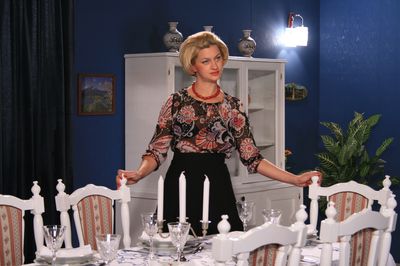
CONTEMPORARY CROATIAN: Re-animating reality
So 02.06. 18:15h Cinema Z3
Curated by 25 FPS Festival, presented by Sanja Grbin
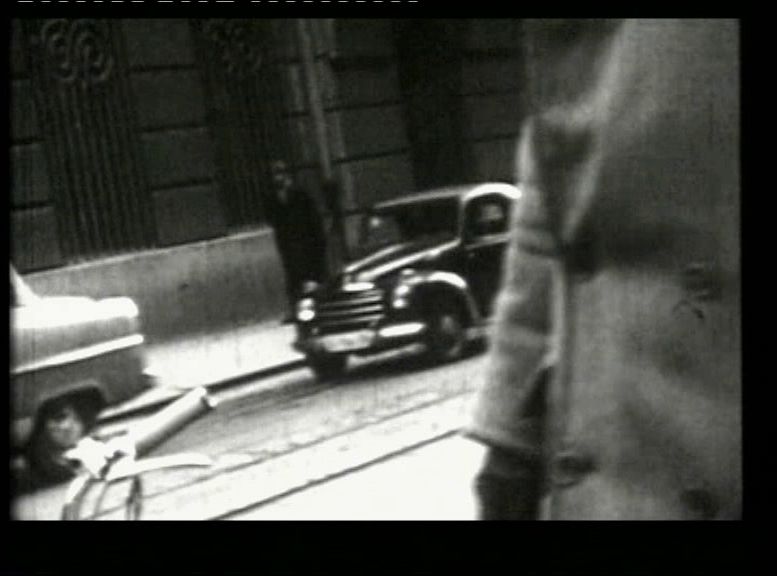
Zagreb Historical 1 - 1960s
Fr 31.05. 22:00h Cinema Z3
Kuratiert von Diana Nenadić.
Wenn wir die Amateur Kino Klubs, die in den 1950/60ern überall im ehemaligen Jugoslawien entstanden sind, als Geburtsstätte des Experimentalfilms betrachten, dann war das Genre Film Festival (GEFF) dessen wichtigste Bühne. Lanciert wurde es 1963 - im künstlerisch erfindungsreichsten Jahrzehnt der kroatischen Kulturgeschichte. Es war ein Festival für filmisch Forschende, ein Ort um neue Ideen auszutauschen, Grenzen zwischen professionellem und Amateur-Kino zu verwischen, verschiedene Künste und Menschen aufeinandertreffen zu lassen, und um Film ins Leben zu integrieren. Der erste Anstoss kam von Diskussionen über Anti-Film im Kino Klub Zagreb in den frühen 1960ern. Anti-Film bedeutete ein Manifest für die Befreiung von «den Mythen, den Autoritäten, den Regeln, den Gesetzen und vom Terror». Es war die Forderung, das dem Film innewohnende Potential radikal zu erforschen und ihn ganz auf ein optisches Phänomen zu reduzieren. Obwohl Anti-Film als Konzept nicht sehr langlebig war und nie auf einer breiten Ebene akzeptiert worden ist, haben die treibenden Ideen – Forschung und Reduktion (von Narration, Autorschaft, Metaphern, Kommunikationsmitteln, etc.) auf vielfältige Weise weitergelebt. GEFF wird nicht nur als einzigartiges Phänomen der sozialistischen Kultur und als wichtige Erscheinungsform des Avantgarde-Films der Region in Erinnerung bleiben, sondern auch als schwer definierbarer «state of mind», der auch in diesem Programm nur annährend gefasst werden kann.
If we consider the amateur cine-clubs, which were emerging during the 1950s and 60s all over the former Yugoslavia, as the birthplace of experimental film in the former YU-federation, then Genre Film Festival (GEFF) launched in 1963 in the Croatian capital as a biennial festival of «film researchers», was its most important showcase during the artistically most inventive decade in Croatian cultural history. Moreover, it was a place of exchanging new ideas, of blurring boundaries between a professional and amateur cinema, meeting between various arts and humanities, and integrating the film into the life. The initial impetus came from discussions on «anti-film», the concept originated in Cine-club Zagreb in the early 1960s as some kind of manifesto of liberation from «the myths, the authorities, the rules, the laws and terror,», as well as of researching the internal potentials of cinema and its reduction to a pure optic phenomenon. Although anti-film as a concept has not been long-lived and widely accepted, its driving ideas – Research and Reduction (of story, authorship, metaphor, means of expression, etc.), lived in various ways among experimentalists throughout the former Yugoslavia, including those gathered around the most important Croatian cine-clubs - Zagreb and Split. GEFF is remembered not only as a unique cultural phenomenon of socialist culture and a major manifestation of avant-garde films in the region, but as an elusive «state of mind» just partially illustrated by this program. (Diana Nenadić)
Diana Nenadić ist Filmkritikerin und Autorin, Herausgeberin Croatian Film Chronicle (Hrvatski filmski ljetopis) und seit 2008 Vize-Präsidentin der Croatian Association of Film Critics.
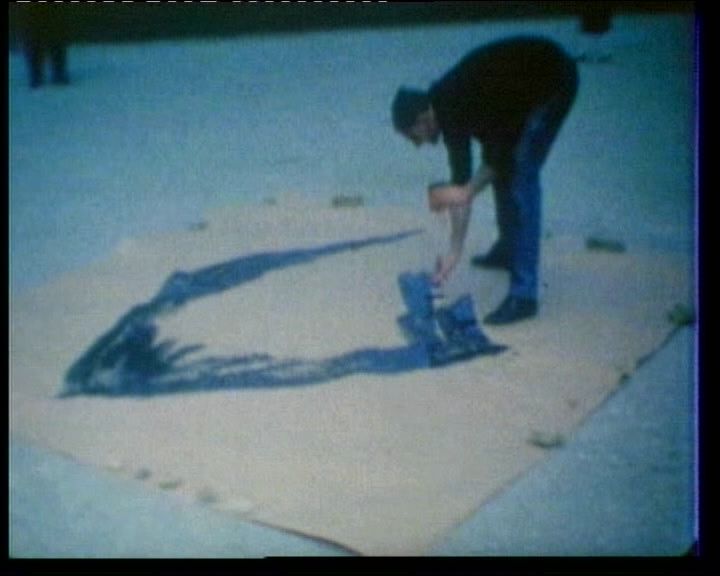
Zagreb Historical 2 - Post-1960s Ping-Pong
Sa 01.06. 14:00h Cinema Z3
Kuratiert von Diana Nenadić.
Das letzte GEFF fand im Frühling 1970 statt und stellte sowohl den Höhepunkt wie auch das Ende der «grossen Geschichte» der kroatischen Avantgarde-Filmära dar. Zusätzlich zur Generationenverschiebung in den Kino Klubs waren die experimentellen Produktionen in den frühen 1970ern auch von fehlendem Enthusiasmus und finanziellen Krisen betroffen und nicht zuletzt auch davon, dass Video zum neuen Medium und Forschungsgebiet für visuelle Künstler_innen der Galerieszene wurde (Sanja Iveković, Dalibor Martinis. Goran Trbuljak). Bis in die frühen 1990er widerstanden nur wenige Anhänger_innen der Avantgarde und des Konzeptfilms, wie Mladen Stilinović and Željko Kipke, dem Ruf der neuen Medien. Einige von ihnen untersuchten Film und Video gleichzeitig (wie Ivan Ladislav Galeta und Zdravko Mustać). Die neue Generation der späten 1980er und frühen 1990er (Bukovac, Zrnić, Narath, Knežević) nahm die Herausforderung der neuen Technologien und des aufkommenden Digitalzeitalters an – das intermediale Ping-Pong zwischen Film und Video würde bald Geschichte sein.
The last GEFF took place in the early spring of 1970, representing both the peak and the end of the «great story» of Croatian avant-garde filmmaking. Besides the generational shift in the cine-clubs, by the early ‘70s experimental production were also affected by the lack of enthusiasm and funding crisis, as well as by video as a new medium that has become a new area of research for the visual artists from the gallery scene (Sanja Iveković, Dalibor Martinis. Goran Trbuljak). Until the early 1990s, just few followers of avant-garde and conceptual practice, such as Mladen Stilinović and Željko Kipke, managed to resist the call of a new medium. Some of them simultaneously investigated film and video (like Ivan Ladislav Galeta and Zdravko Mustać), while a new generation appearing in the late 1980s and early 90s (Bukovac, Zrnić, Narath, Knežević) mainly took up the challenges of new technologies and the coming digital age which will soon turn this inter-media ping-.pong between film and video into an outdated story, or history. (Diana Nenadić)
Diana Nenadić ist Filmkritikerin und Autorin, Herausgeberin Croatian Film Chronicle (Hrvatski filmski ljetopis), seit 2008 Vize-Präsidentin der Croatian Association of Film Critics.



